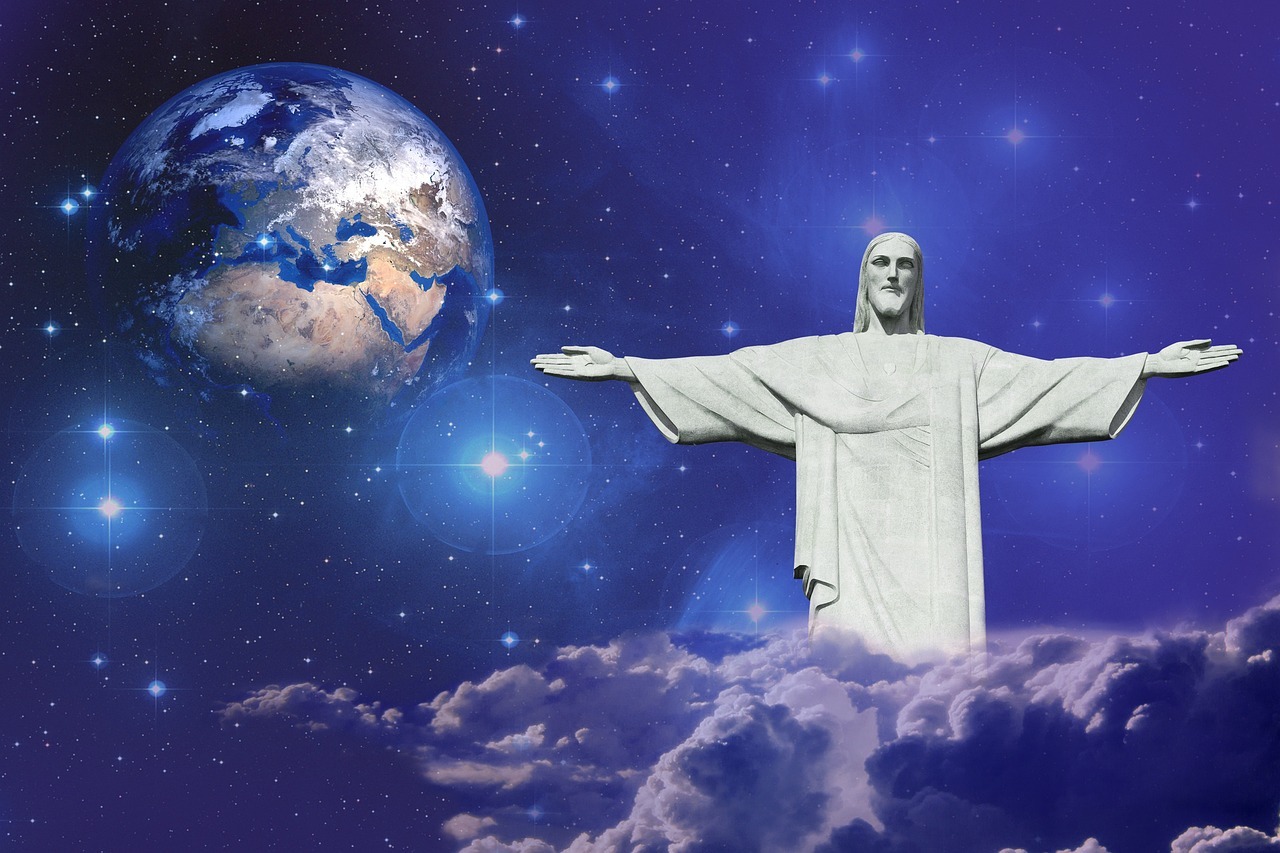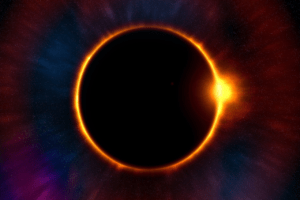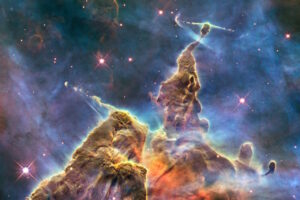This reflection is a continuation from Susan’s June 26 article of the same title.
Here the expression, “Cosmic Christ” can be helpful as it points to Christ’s care of, and reign over. the whole cosmos. We find the scriptural mandate for this Christological perspective in three important New Testament texts.
With all wisdom and insight [God the Father] he has made known to us the mystery of his will, according to his good pleasure that he set forth in Christ, as a plan for the fullness of time, to gather up all things in him, things in heaven and things on earth (Ephesians 1:8-10).
He [Christ] is the image of the invisible God, the firstborn of all creation; for in him all things in heaven and on earth were created, things visible and invisible, whether thrones or dominions or rulers or powers—all things have been created through him and for him. He himself is before all things, and in him all things hold together. (Colossians 1:15-17).
In the beginning was the Word, and the Word was with God, and the Word was God. He was in the beginning with God. All things came into being through him, and without him not one thing came into being (John 1:1-3).
These three texts point to the Cosmic Christ’s presence in all creation. Einstein’s theory of relativity means that we know that all matter is a type of energy, that the real world is energy. Teilhard de Chardin believed that this energy was a Christocentric energy, and as Franciscan Sister, Ilia Delio, came to see in her extensive study of Teilhard, this realization changes everything.
“Matter has become a holy thing and the material world is the place where we can comfortably worship God just by walking on matter, by loving it, by respecting it. The Christ is God’s active power inside of the physical world” (Ilia Delio, adapted from Richard Rohr, Christ, Cosmology, and Consciousness, Center for Action and Contemplation: 2010).
In early May, we were able to watch, many times over I imagine, the coronation of King Charles III and Queen Camilla in Westminster Abbey. For centuries the English Royal Family in their various incarnations – Norman, Tudor, Stuart, Orange, Hanoverian, Windsor – has overseen the enslavement of millions, the oppressions of millions, and the acquisition of wealth that is unimaginable to lesser mortals. History suggests that kings, emperors, tsars, kaisers, or pharaohs never really have the interests of their subjects at heart.
Sadly, our Church has long been tolerant of its more highly ranked clergy taking on the character of monarchical government, and so we talk about papal thrones, palaces, or cardinals as princes of the Church. Fortunately, Pope John Paul II stopped the practice of popes being carried around on a sedia, and just as fortunately, Frances has not reverted to Benedict’s practice of wearing ermine trimmed capes, and so change is coming, albeit slowly.
Perhaps in our increasingly threatened cosmos, celebrating as a solemnity the Cosmic Christ might be more appropriate than celebrating Christ the King as the word “kingdom” today has so many negative connotations. Remember that in John 18:36 Jesus responds to Pilate:
“My kingdom is not from this world. If my kingdom were from this world, my followers would be fighting to keep me from being handed over to the Jews. But as it is, my kingdom is not from here.”
There are signs that the Church still likes some of the trappings associated with the kingdoms of this world. But there are more signs that important sectors in our Church, conscious that the Cosmic Christ’s presence permeates all matter as energy, would love a Solemnity of the Cosmic Christ to be celebrated annually.
Susan Smith RNDM is a lecturer emerita in The University of Auckland’s Department of Theology. Her PhD was on developments in Catholic missiology after Vatican II. After her retirement from The University of Auckland, Susan also provided NT modules for the University of Newcastle, Australia, and a Women in Leadership module for Duquesne University. Susan lives with another member of her congregation in Whangarei, New Zealand, where both are committed to exploring experientially what it means to live in an eco-community. Both are involved in neighborhood environment organizations. They are particularly interested in what might shape eco-spiritualities in New Zealand.





I am growing in my sense of the Cosmic Christ’s presence, permeating “all matter as energy”, and believe that a Solemnity of the Cosmic Christ, celebrated often, would help us all grow in understanding our place in an expanding universe. Many thanks Susan.